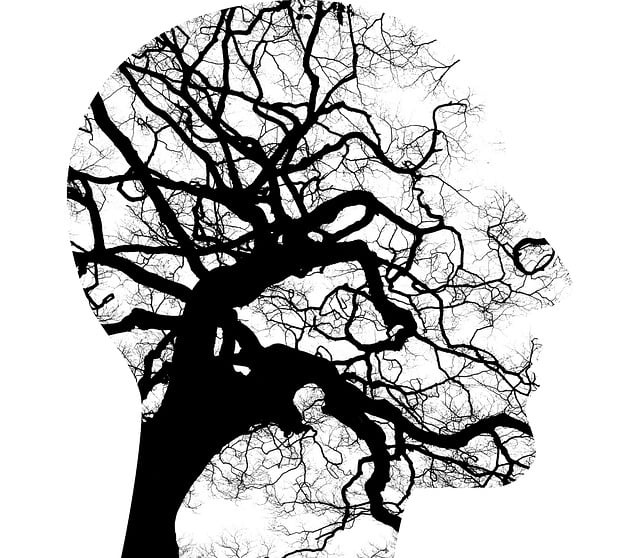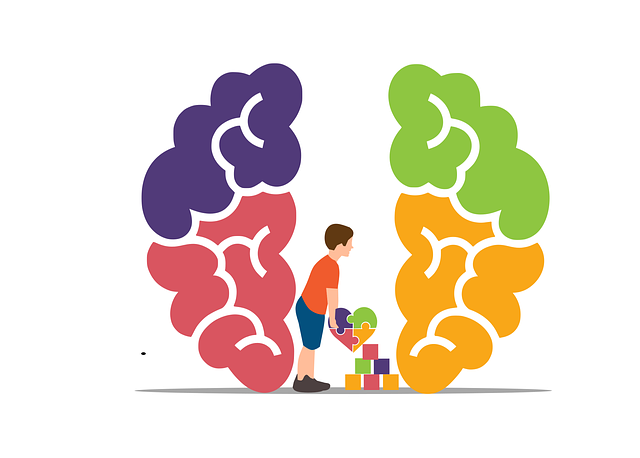Children's emotional responses to loss may differ from adults, expressing grief through behavioral changes rather than sadness. Therapy serves as a crucial support system, offering safe spaces through journaling exercises and empathy-building activities facilitated by mental health professionals. "Therapy for Children First Responders" provides tailored services addressing the unique needs of first responders dealing with trauma, including PTSD support, cultural competency training, and trauma-informed care. Online platforms and crisis intervention guides offer accessible resources for grief counseling, ensuring children and first responders receive the necessary support for emotional healing.
Loss, grief, and bereavement counseling are vital support systems for children and first responders facing tragic events. This article explores these sensitive topics, offering insights into understanding a child’s emotional response to loss. We delve into the unique challenges faced by first responders and the critical role therapy plays in their recovery. Through common techniques and an examination of available resources, readers gain valuable knowledge on providing targeted support for both children and those who serve our communities, ensuring access to essential counseling services.
- Understanding Loss, Grief, and Bereavement in Children
- The Role of Therapy for Children Following Tragic Events
- Targeted Support for First Responders: A Unique Set of Challenges
- Common Techniques and Approaches in Counseling
- Finding the Right Resource: Availability and Access to Services
Understanding Loss, Grief, and Bereavement in Children

Children experience loss, grief, and bereavement just as adults do, but their emotional responses can differ significantly. Understanding a child’s unique perspective is crucial when providing therapy for children who have experienced a significant loss. A child’s ability to process and express emotions is still developing, so their feelings may manifest in unexpected ways. They might exhibit behavioral changes, such as aggression or withdrawal, instead of openly expressing sadness.
When it comes to supporting young individuals, first responders and mental health professionals play a vital role in offering guidance. Using techniques like journaling exercises can help children process their emotions in a safe space. Encouraging them to express themselves through writing allows for an outlet to release feelings and thoughts that might be difficult to articulate verbally. Additionally, communication strategies and empathy-building activities facilitated by therapists can foster understanding and strengthen the bond between the counselor and the child, ensuring they feel heard and supported during this challenging time.
The Role of Therapy for Children Following Tragic Events

After experiencing a tragic event, children can greatly benefit from therapy, acting as a crucial support system to help them process and cope with their loss. This is especially important for young individuals as they may struggle to express their emotions verbally, making it vital for therapists to employ child-friendly techniques and activities that facilitate healing. Therapy provides a safe space for children to explore and understand their feelings, offering them the tools needed to navigate their grief and enhance their mental wellness.
For children involved in tragic events, therapy can also serve as a means to improve self-esteem and foster emotional intelligence. Skilled therapists help young clients make sense of their experiences, allowing them to develop healthier coping mechanisms and build resilience. By addressing their emotional needs and providing guidance, therapy enables children to regain a sense of control and security, which is essential for their overall well-being and growth.
Targeted Support for First Responders: A Unique Set of Challenges

First responders, including law enforcement officers, firefighters, and paramedics, often face unique challenges when it comes to grief and bereavement. They encounter traumatic events on a regular basis, which can take a significant toll on their mental health. The nature of their work exposes them to intense and distressing situations, leading to complex emotional experiences that may be difficult to process. Traditional therapy settings might not always cater to the specific needs of these individuals, as they require specialized support to navigate the unique challenges inherent in their profession.
Tailored Therapy for Children First Responders is a specialized service aimed at addressing these issues. This approach recognizes the impact of trauma on children and provides a safe space for them to express their feelings. Moreover, Trauma Support Services offer critical resources for first responders dealing with post-traumatic stress disorder (PTSD) and other mental health concerns. The Mental Wellness Podcast Series Production can also play a vital role in educating and connecting these professionals, offering valuable insights into coping mechanisms and self-care practices. Additionally, Healthcare Provider Cultural Competency Training ensures that medical professionals are equipped to provide sensitive and culturally aware support, recognizing the importance of understanding the unique experiences of first responders.
Common Techniques and Approaches in Counseling

Counseling for loss, grief, and bereavement is a specialized field that employs various techniques to support individuals through their emotional journey. One of the primary approaches involves helping clients process their feelings, often using talking therapy methods. Therapists encourage open dialogue, allowing individuals to express their emotions freely. This can include techniques like cognitive-behavioral therapy (CBT), which assists in identifying and changing negative thought patterns related to loss.
Additionally, counseling sessions might incorporate mindfulness practices, relaxation techniques, and memory work to honor the deceased. For children experiencing grief, play therapy and art therapy are common tools, enabling them to express their emotions through creative means. In the case of first responders, specialized therapy focuses on trauma-informed care, addressing unique challenges they face in managing stress and maintaining mental wellness. The Healthcare Provider Cultural Competency Training can also play a vital role, ensuring counselors are equipped to support diverse client populations with varied cultural backgrounds and beliefs regarding grief.
Finding the Right Resource: Availability and Access to Services

Finding appropriate resources for loss, grief, and bereavement counseling is a vital step in managing emotional well-being, especially for children and first responders who often face unique challenges. Many communities now recognize the importance of accessible mental health services and offer various options to support individuals navigating these difficult times. One key aspect is ensuring that these resources are easily discoverable and tailored to specific needs.
Online platforms and crisis intervention guidance can be powerful tools, providing information on local therapists specializing in therapy for children and those trained in crisis management planning for mental health professionals. This accessibility allows individuals and their families to connect with the right support swiftly. Additionally, resilience-building programs have gained prominence, offering specialized interventions for first responders struggling with trauma-related issues. Such initiatives ensure that help is available and accessible when needed most.
In conclusion, understanding and addressing loss, grief, and bereavement among children is paramount in their emotional development. Following tragic events, therapy plays a crucial role in helping children navigate these challenging experiences. Specifically, targeted support for first responders recognizes the unique set of challenges they face, while common counseling techniques offer effective approaches to healing. As we emphasize the importance of access to services, ensuring the availability of appropriate resources is key to providing the best care for those dealing with loss and bereavement, especially among vulnerable populations such as children and first responders.













